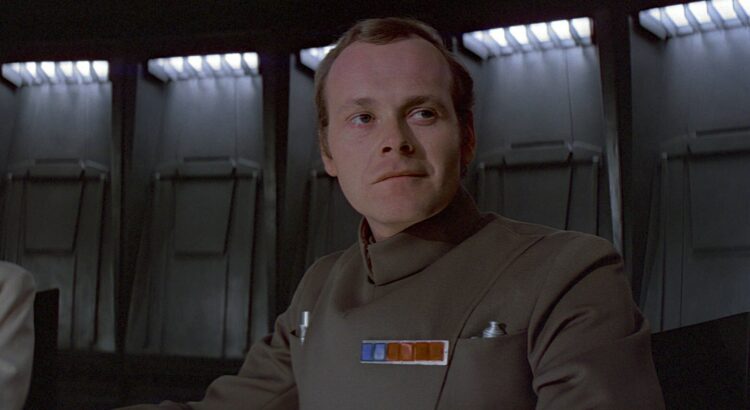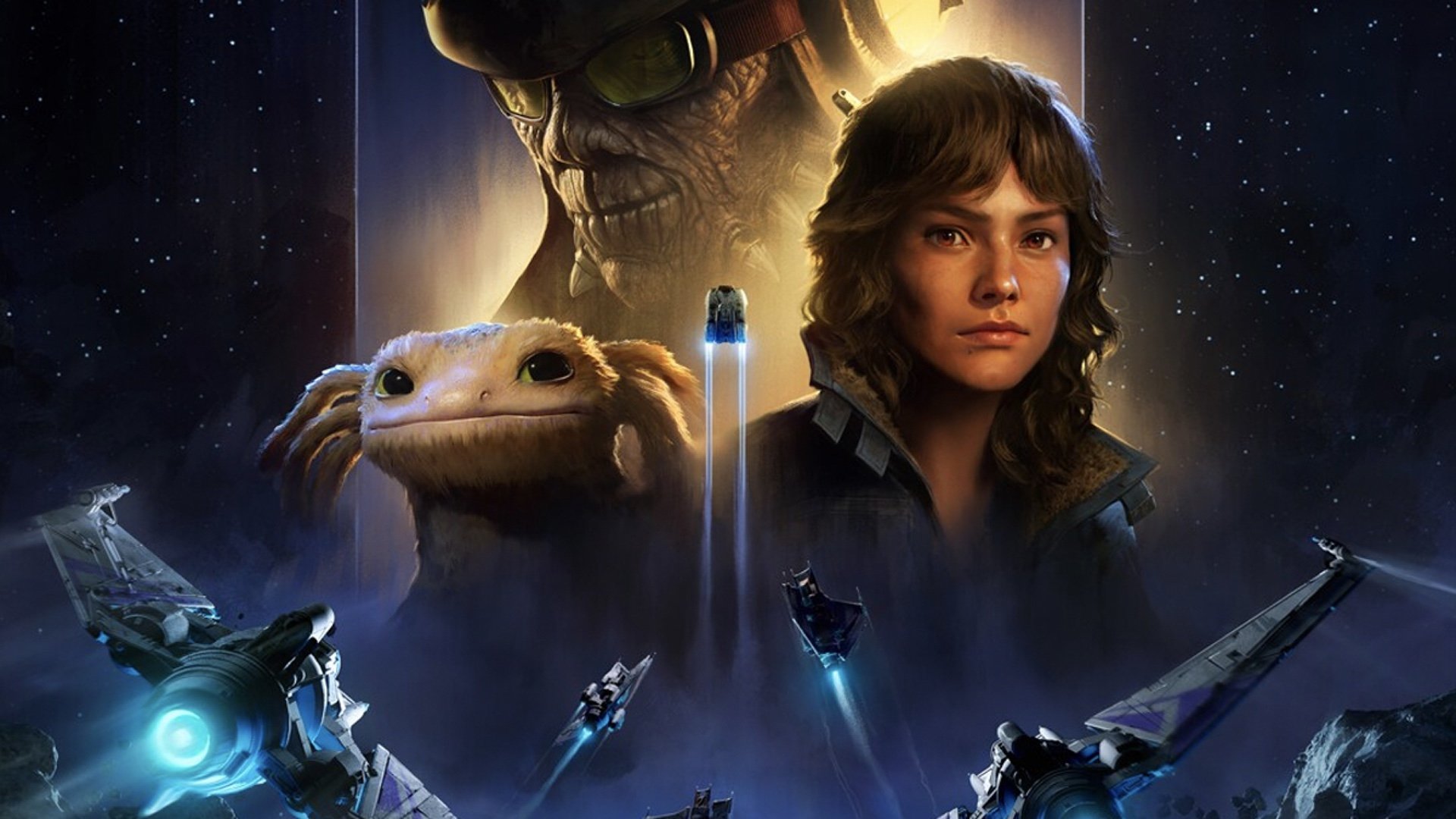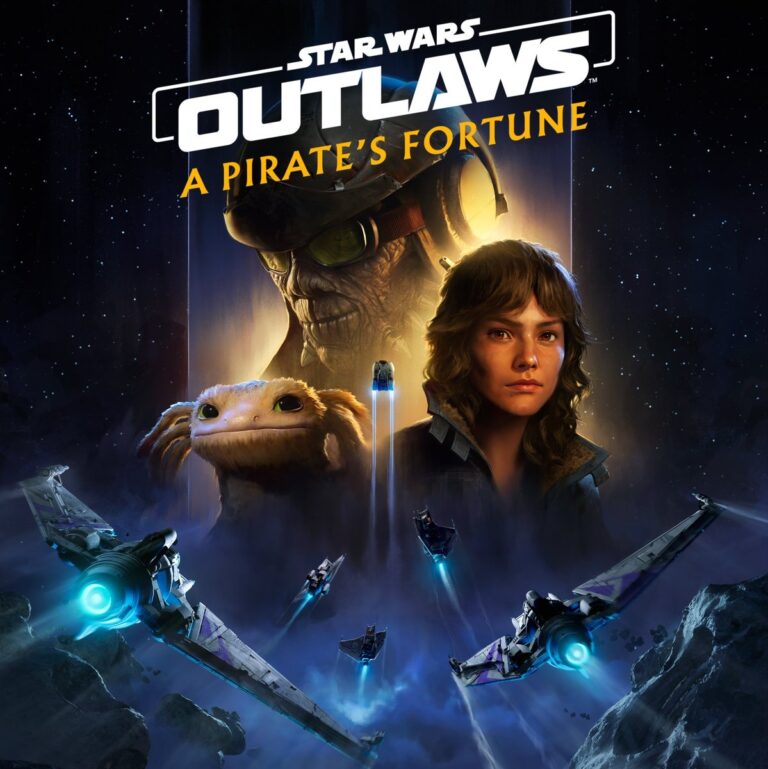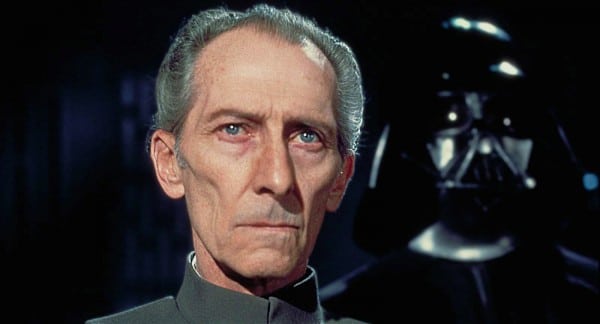When Admiral Motti scoffed at Darth Vader’s “sorcerer’s ways” during that iconic scene in A New Hope, it seemed like just another example of Imperial arrogance. But let’s dig deeper: what if Motti’s snarky dismissal wasn’t born out of sheer ignorance, but out of years of bureaucratic slog and relentless Imperial oversight? Especially now, with Andor Season 2 shedding light on the inner workings of the Empire’s bureaucratic machine, Motti’s frustration feels more justified than ever.
The Grind of Imperial Bureaucracy: Andor’s Perspective
Imagine life as an Imperial officer. Your days are spent buried in logistics reports, troop deployment schedules, and endless strategy meetings. You’re not just sitting around, twirling your mustache and cackling evilly—you’re overseeing massive military projects that span entire star systems. The Death Star wasn’t built overnight; it was a 20-year slog of financial maneuvering, secret construction, and endless paperwork. Andor Season 2 did a brilliant job highlighting the grinding bureaucracy of the Empire, showing us the massive weight of administration that props up Imperial dominance.
Through the eyes of characters like Dedra Meero and Major Partagaz, we’ve seen the sheer volume of paper-pushing and logistical planning that goes into maintaining Imperial order. It’s not just brute force—it’s precision, coordination, and, frankly, soul-crushing meetings. Motti lived in that world. To him, the Death Star was the ultimate symbol of Imperial might. It was his security blanket, his proof that brute technological force could maintain order across the galaxy. Bureaucracy made it happen. Years of toil, clever financial gymnastics, and raw manpower built that station. Motti didn’t just believe in the Death Star; he practically worshiped it.
Enter the “Space Wizard”
Now, enter Darth Vader. For years, Motti likely only knew him as the Emperor’s personal enforcer—a towering figure who swept in when things got messy. A political hammer more than anything mystical. Sure, there were rumors about “The Force,” but as far as Motti knew, that was just an outdated myth. Vader was Palpatine’s attack dog, not some divine sorcerer.
So, when Vader waltzes into the Death Star briefing and starts waxing poetic about how “The Force” is stronger than the most advanced technological terror ever constructed, you can practically feel Motti’s frustration boiling over. Andor Season 2 has already shown us how Imperial officers like Dedra and Major Partagaz handle insurgencies with data, strategy, and sheer force. Now imagine the same people—who spent years monitoring rebel movements, analyzing data, and quelling uprisings—being told that it was all irrelevant compared to “The Force.” It’s the equivalent of spending twenty years building the world’s most powerful battleship, only for someone to stroll in and claim that a rowboat with the “right kind of magic” could take it down.
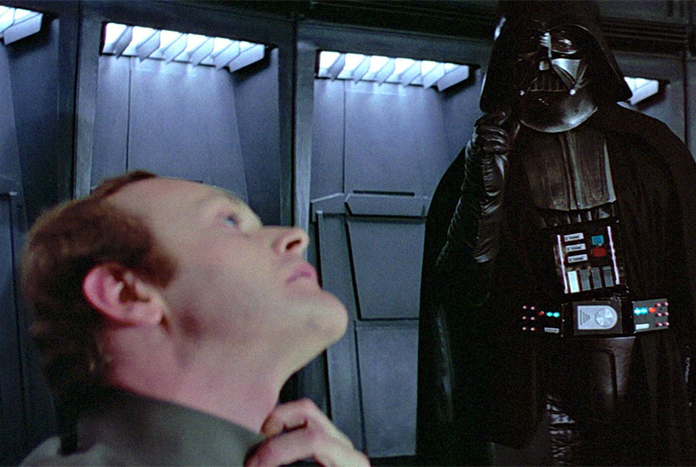
“Don’t try to frighten us with your sorcerer’s ways, Lord Vader.”
When Motti says that line, it’s not just smug arrogance—it’s pure, unfiltered exasperation. For two decades, the Empire has been leaning on bureaucracy, logistics, and brutal efficiency to get this Death Star ready for action. Now, Vader is belittling all of that with vague talk of ancient religions? Of course Motti scoffs. He’s had enough of the mystical nonsense. He’s not buying into the fairy tale. He’s living in the real world—one held together by numbers, weapons, and fear.
What makes it even better is that Motti’s not entirely wrong. From his perspective, Vader’s “Force” had done precisely zero to get the Death Star built. It didn’t mine the kyber crystals. It didn’t shuttle materials across the galaxy. It certainly didn’t handle payroll. To Motti, the Force was nothing but a sideshow; the real power came from the Empire’s war machine and logistical mastery.
The Irony of His Fate
Of course, Motti’s arrogance got him Force-choked right there in the meeting. But even then, you get the sense that he wasn’t convinced. His dying breaths weren’t gasps of faith—they were probably curses. Motti was a true believer in Imperial might and bureaucracy, and to him, Vader’s magic was just a party trick. His death wasn’t just the result of disrespect; it was the final note in a life of practical, cold belief in the Empire’s technological supremacy.
Conclusion: A Man of the Empire
Admiral Motti wasn’t just an arrogant officer—he was the very embodiment of Imperial bureaucracy. To him, the Empire’s power wasn’t mystical; it was logistical. It was built with credits, sweat, and steel—not magic. His final act of defiance wasn’t mere ignorance; it was the declaration of a man who had spent decades fighting to build an empire of technology, only to be told it was worth less than some monk’s mind tricks.
Motti’s death serves as a reminder of the Empire’s true power—and its greatest flaw. It could build a weapon capable of destroying planets, but it couldn’t see the invisible hand of the Force coming for it. For all his arrogance, maybe Motti was just the most honest Imperial in the room.
And with Andor Season 2 fresh in our minds, we finally understand why. Motti wasn’t just dismissing Vader; he was defending everything the Empire had built—one bureaucratic nightmare at a time.


